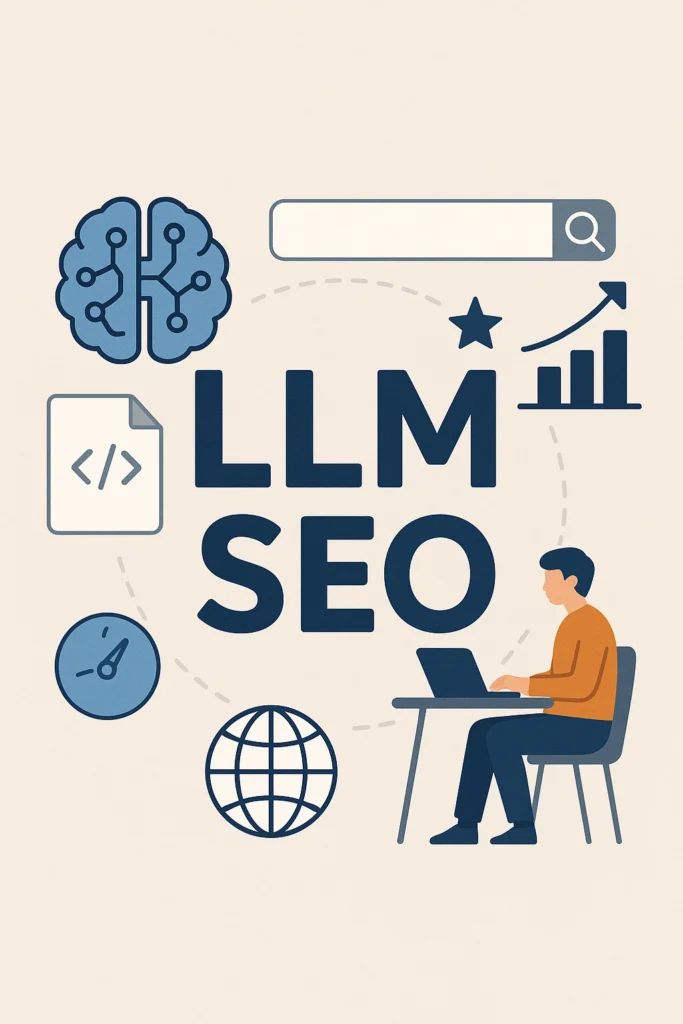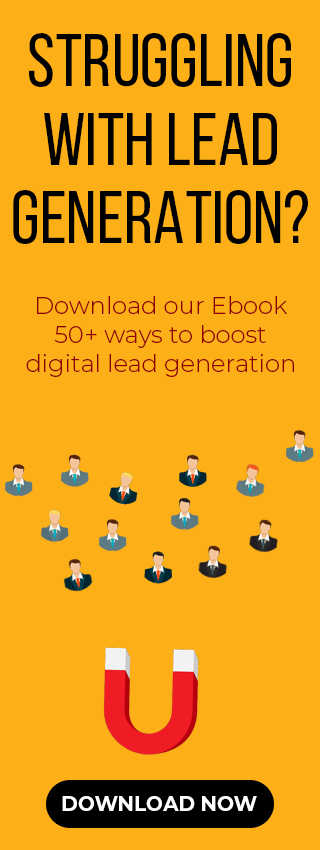keytakeaways
- LLM SEO optimizes content for AI answers
- Clear structure helps AI understand content
- Authority and context improve trust
- LLM SEO complements traditional SEO
Think of how you used to find information online. You would type a question into Google and it would give you a list of websites ranked from best to worst. Your goal as a creator was to get your website to the very top of this list.
But content must now be created for both humans and AI. It’s because AI has changed how people find information online. And this blog explores some great ways to do so.
Study suggests that around 80% are resolved without users clicking on a website. This shows how important refining your content for AI has become.
What is LLM SEO?
It’s about content that AI systems can easily find and use to answer people’s queries. This is about getting your information in front of the AI itself so that it can be a source for its answers. It’s much different from traditional SEO which just focuses on ranking higher on search engines.
Top LLM SEO Plans to Help You Rank Higher
Plan 1: The AI-Ready Content
The basics of good SEO are still essential despite AI’s growing popularity. Your website still needs to be fast and structured well so search engines can easily understand it.
And below is what AI looks for in your content:
- Structured and transparent: It’s easy for a machine to read and understand.
- Fact-based and authoritative: It’s trustworthy and accurate.
- Conversational and rich with context: It’s written in a natural, human-like way.
Using these approaches allows your content to succeed across multiple platforms. It helps you rank high on search engines and be used as a source by AI models.
Plan 2: Make Clear and Skimmable Content
Using a clear and organised structure for your content helps both search engines and AI models easily understand it.
And here’s how you can do that:
- Use Consistent Headings: Using clear headings in your content such as a main title for a section makes it much easier for AI to understand. Studies show that this can significantly increase the chances of an AI using your content.
- Use Schema Markup Codes: Add these special codes to your website to tag what your content is about. This informs AI tools whether your content is an article or a guide, which makes your information more visible and trustworthy.
- Optimise your Content for AI: Don’t hide vital facts in complex parts of your website. Make sure such facts are easy for AI tools to find and scan.
Using clear headings with a Q&A format makes it easier for both people and AI to find and understand your content.
Plan 3: Create Authoritative Content That AI Trusts
- From Keywords to Concepts
Make content that presents your brand as an industry expert instead of just using keywords. This helps AI connect your brand to these topics which makes your data more credible.
- Group Your Content by Topic
Group your content by topic. Start with a main article about a broad topic. And then write several smaller articles that cover specific details. This shows AI that you are a true expert on the subject which makes your website a reliable source.
(c) Write in a Conversational Tone
Write your content using simple language and headings with questions like “What is…” or “How do I…”. This makes it easier for artificial intelligence to find answers it’s looking for.
Plan 4: Adopt a Question-Based Format
Large Language Models work best with questions asked naturally. It means that your content now needs to be written as a direct spoken answer. This new approach is known as Answer Engine Optimisation.
Its goal is to provide a quick and credible answer that an AI can use. This creates a fair playing field for everyone, since AI values clear and accurate information above all else.
Start with a brief and straightforward answer between 40 and 60 words when writing for AI. Use simple words and organise your facts using bullet points and tables.
Plan 5: The New Way of Measuring Success
Legacy metrics like clicks are losing their importance. It’s because AI now gives direct answers without requiring users to click on a website.
- Track AI visibility: Use special tools to track how often AI platforms like Perplexity and Gemini reference your content. This helps you see which of your pages AI considers to be the most reliable and valuable.
- Measure Conversational Authority: Appearing in AI answers could be more valuable than having your website rank high in search results.
- Treat AI as a Content Distribution Channel: Test various prompts and citations beforehand for quality results.
Plan 6: Technical SEO Practices
Don’t ignore your website’s health. AI bots prefer content that is structured and loads fast. This makes technical SEO a key part of LLM optimisation.
You can do this by:
- Ensuring your web pages load quickly and function smoothly on mobile devices.
- Using special files like robots.txt to manage how AI bots crawl your site.
- Updating your content’s publish dates and metadata to help AI trust your information.
- Using schema codes to label your content. This helps AI understand your content better.
- Organise your content with clear headings and use lists or tables. This makes it much easier for AI to scan it.
- Connect your pages with internal links. This helps AI see how your content is connected and demonstrates your expertise on a topic.
Plan 7: The Risks and Rewards of AI SEO
Improving your content for AI can open up new opportunities. But it also comes with some risks. Many experts warn about the risk of creating content just to trick AI systems into giving biased or false information. Research also suggests that many new AI SEO tricks might not work as well once everyone starts using them.
That is why it’s crucial to be ethical. Focus on creating genuine content instead of just trying to fool AI. Not only will this build trust amongst users but it will also help ensure AI systems provide reliable information.
The Future of LLM SEO
The online search world is quickly changing. AI models like Gemini now give us direct answers instead of a list of links. Such AI systems do a lot more than just find information. They summarise information to provide you with the exact answer you want without you needing to visit a website.
Let’s know some key terms that are changing how brands are found online.
- Generative Engine Optimisation (GEO): This involves creating quality content that AI can use as a source and is not just for ranking high on search engines.
- Answer Engine Optimisation (AEO): It includes creating content that is structured for direct answers and written in a natural tone.
- AI Optimisation (AIO): This is a broader approach that ensures your content works well with how AI systems function.
These are the new strategies that successful brands are using to stay ahead online.
LLM SEO Action Checklist 2026
| Category | Key Actions |
| Structure & Markup | Use clear headings and bullet points. Add schema codes to your site and ensure that your key information is easily accessible within the website’s basic code. |
| Authority & Context | Use your brand and its products to demonstrate your expertise. Get your brand recognised by Google’s Knowledge Graph and group your content by topic. |
| Conversational Formatting | Write in a Q&A format and use natural language. |
| Technical Foundations | Ensure your pages load quickly and are easily crawlable by AI bots. |
| Monitoring & Metrics | Use tools to track how often AI mentions your content and adapt your strategies. |
| Ethical Vigilance | Don’t try to trick AI. Focus on creating factual and helpful content. |
| Multi-Model Readiness | Use strategies that work for different kinds of AI, like those that create content and those that give direct answers. |
Conclusion
You need to refine your content now. It’s because online searching is becoming more conversational due to AI. Only those brands will succeed online that excel in both SEO and AI visibility.
These brands will be masters of writing clear and structured content. The race for online success is now between search engines and generative AI answer systems. Ranking high on Google is still important. But having your content used as a source by AI models might become your biggest advantage.
FAQs
Q1. What is LLM SEO and how is it different from traditional SEO?
LLM SEO helps websites show up in AI search tools like ChatGPT and Gemini. It works by ensuring your content answers questions people ask conversationally. This differs from regular SEO which relies on specific keywords to improve search rankings.
Q2. Why is schema markup important for LLM SEO?
A schema helps AI understand what your content is about along with its structure. This makes it more likely for the AI to use your information directly when answering a question.
Q3. How can I measure the success of my LLM SEO efforts?
Just tracking clicks or rankings isn’t enough. You must also monitor how often your brand is mentioned or cited by AI tools in AI Overviews. This shift in focus is key to understanding your content’s actual impact on AI.
Q4. What are common mistakes to avoid in LLM SEO?
Avoid keyword stuffing and overloading content length without depth. Plus, you should also avoid ignoring conversational flow and entity-rich formatting. All such actions are common pitfalls that can hurt your performance.
Also Read:
Google Gravity or Do a Barrel Roll
Top WordPress Web Development Company
Top WordPress Website Design Services
Best Web Development Services in Noida





